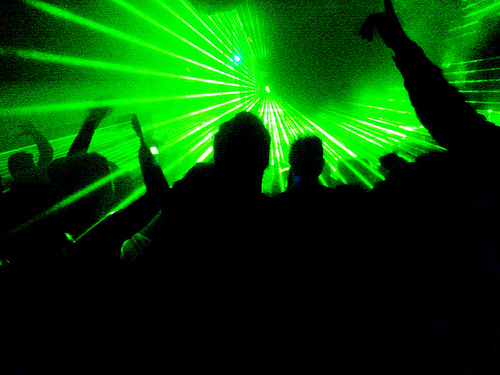Who you used to be
Much of what you do today (or don’t do) was decided by the person you were years ago, a person with less life experience and less insight into your values.

By Capital Thinking • Issue #1067 • View online
Once my friends and I reached legal bar-going age, I watched as we split into two factions.
There were the people who went out to clubs to dance, and the people who went to pubs to sit and drink and talk loudly.
The person you used to be still tells you what to do
I hated the clubs. The music was awful, thumping electronic noise. I think I made about three attempts to have fun this way, and then I made a long-lasting error in judgment. I made a conclusion about myself I wasn’t qualified to make: dancing is not for me.
As it turns out, much more investigation was required. But I didn’t bother. I thought I knew.
I’d endured three dull nights drinking draft under sweeping blue lights, pretending I was happy to be out and about but silently wondering how anyone could bring themselves to flail their bodies to uptempo remixes of Ricky Martin.
So without quite realizing it, I decided I am not one who dances. I love music, but not the music people dance to.
A sweeping generalization like that, if it concerns who you are and what’s for you or not for you, can affect you for a long stretch of your life. For the next twelve years all invitations to go out dancing were declined by default.
That’s all it takes to keep something out of your life, a single instance of telling youself, “This is not for me.”
The problem is we don’t think much about what exactly constitutes “that” and so we’re prone to dismissing, just by association, a whole lot of experiences that maybe are for us. We lose track of our symbols.
Earlier this year it cracked — while traveling, which seems to be what I’m doing at all of the moments in which I become aware that a long-held misconception about myself has just died.
I found myself sitting crosslegged on a friend’s floor, talking about music with a woman I’d just met. I liked her right away, and every time she mentioned an act I liked too, I felt closer to her.
When she mentioned she liked electronic dance music I felt a pang of disappointment — a bit less of a connection, momentarily. Somehow, nearly half a lifetime after I first rolled my eyes at a roomful of late-nineties club crowd, I figured some part of what I had seen and hated appealed to her.
And that’s because I already knew that is not for me. I’d known for years. I don’t dance. I think I said so.
I already knew her taste was excellent, though, and so I explored the music she was talking about, and of course it sounded nothing like the electro-pop shlock I had hated as a teenager. It was awesome. Unpretentious and refined.
And now I dance. I love it. I should have been doing it all along.
To that day — and thankfully, never after — the image I had in my mind of going out to dance is the same one I rejected twelve years earlier: drunk teenagers dancing in a terrible suburban club to vapid anthem-pop.
What surprised me was how relevant my opinion of dance music still seemed, up until that moment. It felt true, but it was based on old, inadequate data, like most of our opinions probably are.
Still, we tend view our own beliefs as if they are real knowledge. I hadn’t realized how crusty and obsolete my impression of “dance music” was.
In reality, since I’d last actively considered it, the sun had risen and set four thousand times, wars had been fought, borders had been redrawn, great loves had started and ended, eras had died.
Children who were five then were now driving cars, and somehow I still felt like I had a pretty clear idea of what I was missing.
I can’t say for sure what my early dismissal of dancing cost me. Certainly hundreds of amazing nights out.
Certainly dozens of would-be friendships and connections. Certainly it stifled my progress away from shyness and self-consciousness.

Much of what you do today (or don’t do) was decided by the person you were years ago, a person with less life experience and less insight into your values.
Your identity — as in who you are to yourself, and who you are to others — changes throughout your life, and the person most qualified to be deciding how you spend your time now is always going to be who you are today.
But we often don’t work like that. We work from conclusions made years ago, usually with no idea of when we made them, or why.
Most of our standing impressions are probably based on a single experience — one instance of unpleasantness or disappointment that turned you off of entire categories of recreational activities, lifestyles and creative pursuits, forever.
